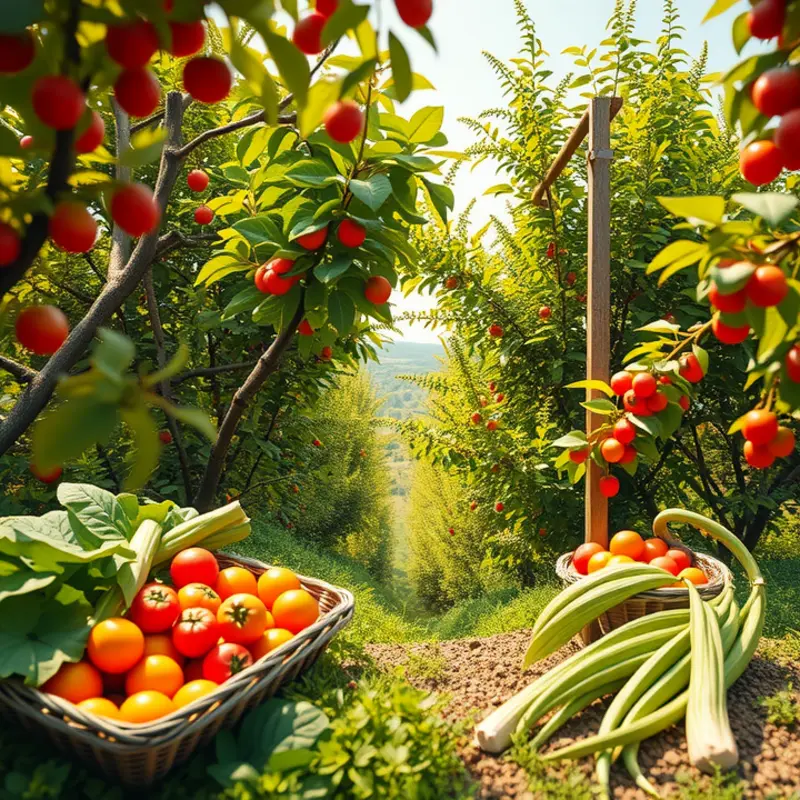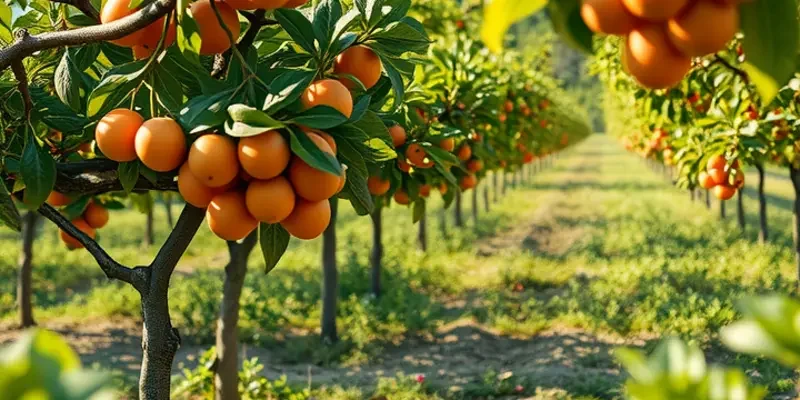Adopting eco-smart grocery habits has become a necessity in today’s world, where the impact of our food choices on the environment is increasingly evident. By integrating sustainable practices into our shopping routines, we can significantly reduce waste, support local farmers, and choose healthier options for ourselves and the planet. This guide will explore actionable steps towards making eco-friendly food choices and creating a positive environmental footprint through our grocery habits.
Conscious Shopping: Making Sustainable Choices

Embracing eco-smart grocery habits means taking a proactive approach to our shopping practices. At the core of this lies the selection of organic produce, which not only supports ecological farming methods but also reduces the load of synthetic chemicals in the environment. Opting for organic can sometimes be more costly, yet it reflects a commitment to health and sustainability.
Understanding food labels is pivotal in conscious shopping. Labels provide insight into the origins and quality of food. Look for certifications that indicate ethical practices such as fair trade or animal welfare considerations. Learning to decipher these labels empowers consumers to make choices that align with their values.
Recognizing the importance of seasonality in produce can significantly reduce the carbon footprint associated with long-distance transport of foods. Seasonal fruits and vegetables often taste better, cost less, and draw from the local bounty. By opting to buy seasonal, we support local agriculture, shrinking the supply chain and fostering community resilience.
Farmers’ markets offer a unique opportunity to support local producers directly. Here, consumers can interact with growers, ask questions about cultivation methods, and get insight into food origin stories. This form of direct commerce tends to encourage more sustainable practices as it promotes shortened supply lines and reduced packaging.
Plastic-free shopping remains a challenging yet crucial goal. Many stores now offer bulk buying options, serving as an effective way to cut down on plastic use. Bring your own containers or bags to avoid unnecessary packaging. This effort not only reduces waste but also curbs the demand for single-use plastics.
Proper meal planning plays a crucial role in reducing food waste and promoting a sustainable lifestyle. Planning meals ahead ensures that all purchased items are used effectively, minimizing leftovers that end up unsalvaged. Freeze or preserve surplus produce to extend its usability, tapping into resources like low waste cooking prep for innovative ideas.
The practice of buying in bulk supports sustainability by diminishing the overall need for shipping and packaging. Select non-perishable goods like grains or legumes in larger quantities to reduce individual packaging waste and benefit from cost savings.
By structuring our grocery shopping around these principles, we do not merely contribute to individual wellness but also champion the health of the planet. Conscious shopping presents a chance to align our purchasing power with sustainable values, paving the way toward a greener future.
Waste Not: Reducing Food Waste at Home

Addressing food waste begins with recognizing the true value of every ingredient in your kitchen. Mindful consumption not only minimizes waste, it also makes grocery shopping more cost-effective and environmentally friendly. By implementing practical strategies, we can significantly reduce the amount of food we throw away.
Understanding Portion Sizes and Meal Prepping
Proper portioning is crucial in reducing leftovers. Understanding portion sizes helps in purchasing only what you need, which avoids overbuying and spoilage. For more efficient meal planning, use batch cooking. Prepare large quantities of food that can be portioned and stored for later meals. This reduces time spent in the kitchen and ensures nothing goes to waste.
Creative Leftover Strategies
Transforming leftovers into new meals can be an exciting culinary challenge. Scraps such as vegetable peels become delicious broth for soups, and stale bread can turn into crunchy croutons or breadcrumbs. Innovate with recipes that prioritize low-waste cooking techniques link. Such creativity expands your cooking repertoire and minimizes waste at the same time.
Storage Techniques to Extend Freshness
Proper storage is another key to reducing waste. Organize your fridge with a ‘first in, first out’ system to use older items first. Utilize airtight containers and appropriate wrapping techniques to extend freshness. For sauces, consider safe storage practices that prevent waste and ensure quality.
Embrace Composting
Composting turns organic waste into nutrient-rich soil. Even if you don’t have a garden, small kitchen compost bins offer an accessible way to recycle food scraps. Composting reduces landfill contribution and creates valuable resources for plant growth.
Food Preservation: Canning and Freezing
Canning and freezing are essential for long-term preservation. Canning fruits and vegetables when they’re in season ensures availability year-round without spoilage. Freezing extends the life of meats, bread, and other perishables. Understand the best practices of these methods to maximize their effectiveness.
Mindful Consumption and Shopping Lists
Mindful consumption involves planning your meals and creating detailed shopping lists based on inventory checks. This practice reduces spontaneous purchases and ensures you buy precisely what you’ll consume. Learning to eat consciously, as discussed in mindful eating practices, contributes greatly to minimizing waste and maximizing enjoyment of your meals.
By adopting these strategies, we can take significant steps towards a zero-waste lifestyle, which is essential for sustainable living. Emphasizing prevention over management of waste will lead us to more eco-smart grocery habits and benefit the planet immensely.
Final words
Ultimately, adopting eco-smart grocery habits is a journey that begins with informed choices and conscious actions. By being mindful of what we purchase and how we utilize our food, each one of us can make impactful contributions to a healthier planet. As we embrace practices like supporting local farmers, reducing waste, and understanding our food sources, we foster an environment that prioritizes sustainability and health. Together, let’s commit to decisions that enhance our well-being and safeguard the earth for future generations. Remember, every small action counts towards creating a significant change.








